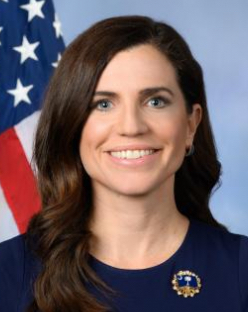The MORE Act passed the House last week, but it’s just one marijuana-related bill making the rounds
By Jason Langendorf
Marijuana legalization was passed last week by the U.S. House of Representatives, but the bill—which would deschedule cannabis at the federal level—is likely to see its journey end there.
The passing of the Marijuana Opportunity Reinvestment and Expungement (MORE) Act, first introduced in July 2019, marks the second time the bill has made it through the lower house (it previously happened in December 2020). The oldest comprehensive measure in Congress, the legislation would remove marijuana from the list of scheduled substances under the Controlled Substances Act and eliminate criminal penalties for marijuana manufacturing, distribution and possession.
Why should any of this concern the addiction treatment space? Because the MORE Act would provide consistent regulation … and dedicated funding that better serves marijuana research, education, prevention and treatment programs.
“If states are the laboratories of democracy,” Rep. Jerry Nadler (D-NY), who sponsored the bill, said in a statement on the House floor, “it is long past time for the federal government to recognize that legalization has been a resounding success and that the conflict with federal law has become untenable.”
In addition to decriminalizing marijuana and expunging past non-violent cannabis-related charges, the MORE Act would:
- Establish a trust fund to support various programs and services for individuals and businesses in communities impacted by the War on Drugs
- Prohibit the denial of federal public benefits to a person on the basis of certain cannabis-related conduct or convictions
- Prohibit the denial of benefits and protections under immigration laws on the basis of a cannabis-related event (e.g., conduct or a conviction)
- Direct the Government Accountability Office to study the societal impact of cannabis legalization
Even as public support for marijuana reform has swelled and lawmakers on both sides of the aisle acknowledge past missteps in the regulatory approach to cannabis, the MORE Act is yet again expected to stall in the Senate.
Beyond the MORE Act …
Even as the MORE Act makes its way to the upper house for a vote, similar marijuana legislation—including one Republican-sponsored bill—is under consideration. While the common thread between these proposals is to eliminate any conflict between federal and state regulations, policymakers disagree on many other related points.

The MORE Act, for instance, calls for a commercial cannabis tax—starting at 5% and increasing 1% incrementally over the next three years, to 8 percent—to be funneled directly to communities most affected by the War on Drugs. Meanwhile, the Republican proposal sponsored by Rep. Nancy Mace (R-S.C.) caps a federal cannabis tax at 3% and technically doesn’t federally decriminalize marijuana but gives states the freedom to set their own local laws.
Even amid the descheduling talks, some—including many GOP lawmakers—still consider marijuana to be a gateway drug and speculate wildly about its addictive properties.
“One thing we’ve got to realize, opioids help with pain, but they create a lot of addiction,” Sen. Lindsey Graham (R-S.C.) told South Carolina’s WMBF News. “There’s no easy answer here, but in terms of legalizing marijuana, no. I think it brings a lot of problems with it. In terms of allowing marijuana in controlled environments, in the hands of doctors, that could be something I could support.”
But much of the debate around marijuana legislation has to do with, of course, money—and specifically where any new law would direct it.
Amazon, for instance, which has eliminated marijuana testing for most of its employees, has thrown its support behind all current marijuana reform legislation. Mace makes no bones about why, telling Forbes, “It opens up the hiring pool by about 10 percent.”
Whether the MORE Act dies in the Senate, eventually takes on another form or is replaced by another cannabis reform bill, federal marijuana legislation is on the way—and sooner rather than later.
Any legislation will have wide-ranging potential financial effects, from corporate “gifting” of marijuana that sidesteps cannabis laws to the impact on racial equity within the industry. Safe banking is yet another concern, as dispensaries are essentially restricted to cash business, which creates security risks and limits growth.
Why should any of this concern the addiction treatment space? Because the MORE Act would provide consistent regulation (not just state-by-state) and dedicated funding that would better serve marijuana research, education, prevention and treatment programs, as well as the expansion of medical cannabis at the Department of U.S. Veterans Affairs.
Whether the MORE Act dies in the Senate, eventually takes on another form or is replaced by another cannabis reform bill, federal marijuana legislation is on the way—and sooner rather than later. Let’s hope any reform is truly designed to lift up those who have been hurt most by the misguided marijuana policies of our past.
Illustration: Shutterstock














